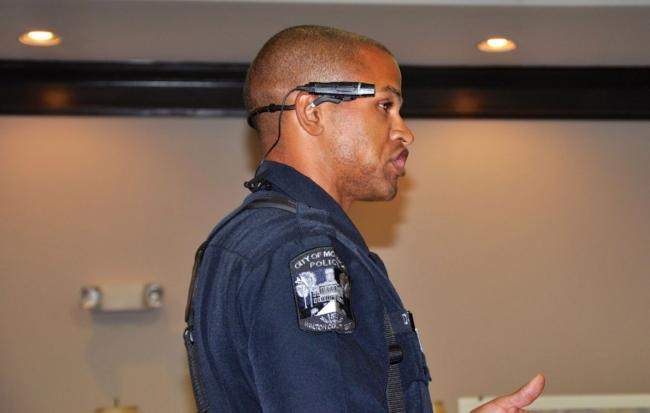What you need to know about police body-worn video cameras
Body Worn Video cameras by Seattle Police officers are about to be tested.
Mon, 12/15/2014
By Tim Clifford
On Dec.12 the SPD blotter webpage announced that 12 officers from the east precinct will begin wearing body-worn-video cameras (BWV) while on patrol. The Seattle Police Department will evaluate the results of this pilot program with the goal of implementing BWV’s in all precincts throughout the city.
Two different brands of cameras will be tested, one by Arizona-based tech company TASER and the other by Seattle-based company VIEVU. The technical differences between the two come down to the TASER camera recording solely in standard definition and coming with the ability to be worn on clothing and sunglasses while the VIEVU camera will record in both HD and standard definition but is only wearable on uniforms.
Both cameras are currently in use in New York and Los Angeles police departments. Each camera will be tested for 60-90 days at a time to determine the best fit for Seattle.
Before starting duty with the cameras all of the officers selected will be required to pass a departmental training course in the operation and policy compliance with the BWV. It is noted that while any officer participating in the program who refuses to record while on duty will not be “punished” the department can eject and replace them.
According to policies created by SPD under the guidance of Merrick Bobb, a monitor with the Department of Justice, officers will begin recording in these instances:
- As soon as an officer begins traveling to respond to a 911 call
- Any traffic or pedestrian stops
- During arrests, seizures, searches, and chases
- During questioning and interrogations
- During transports of suspects to jails
- If any criminal activity is spotted
Those who encounter officers with a BWV will know they are being recorded both by a verbal request or notice from the officers and a little red light on top of the device. There are only a few certain instances where citizens can stop a recording which include when an officer is in a private home. It is also prohibited for recordings to be made while in hospitals, jails and (somewhat humorously) restrooms.
All recordings will be archived as soon as the officers go off-duty and will be kept by the department “indefinitely”. Any viewings of the videos will be logged along with a reason for viewing the video and listening to the audio recordings.
So what how will BWV’s effect police interactions with citizens and suspects?
Privacy is an issue for both citizens and officers alike. Despite policies stating that officers will not record during protests or public demonstrations there remain grey areas that would require officers to record at all times if they think a crime will be committed. Some officers themselves are also concerned with the constant “microscope” that would be attached to their lapel.
It also rests on the officers to actually switch the devices “on”, an issue that effected Spokane during their trial run of BWV’s. A fatal shooting of a 20-year-old suspect occurred while an officer was wearing a BWV that had (for reasons unknown) not been activated.
There remain concerns in the public about the actual efficacy of video recordings against police misconduct, such as in the recent Eric Garner grand jury decision in New York.
However the Department of Justice has recently issued a study that proclaims that BWV’s “have a civilizing effect” for all involved and only work to increase police “transparency and legitimacy”. This same report claims a reduction in citizen complaints against the police and fewer assaults on officers.


